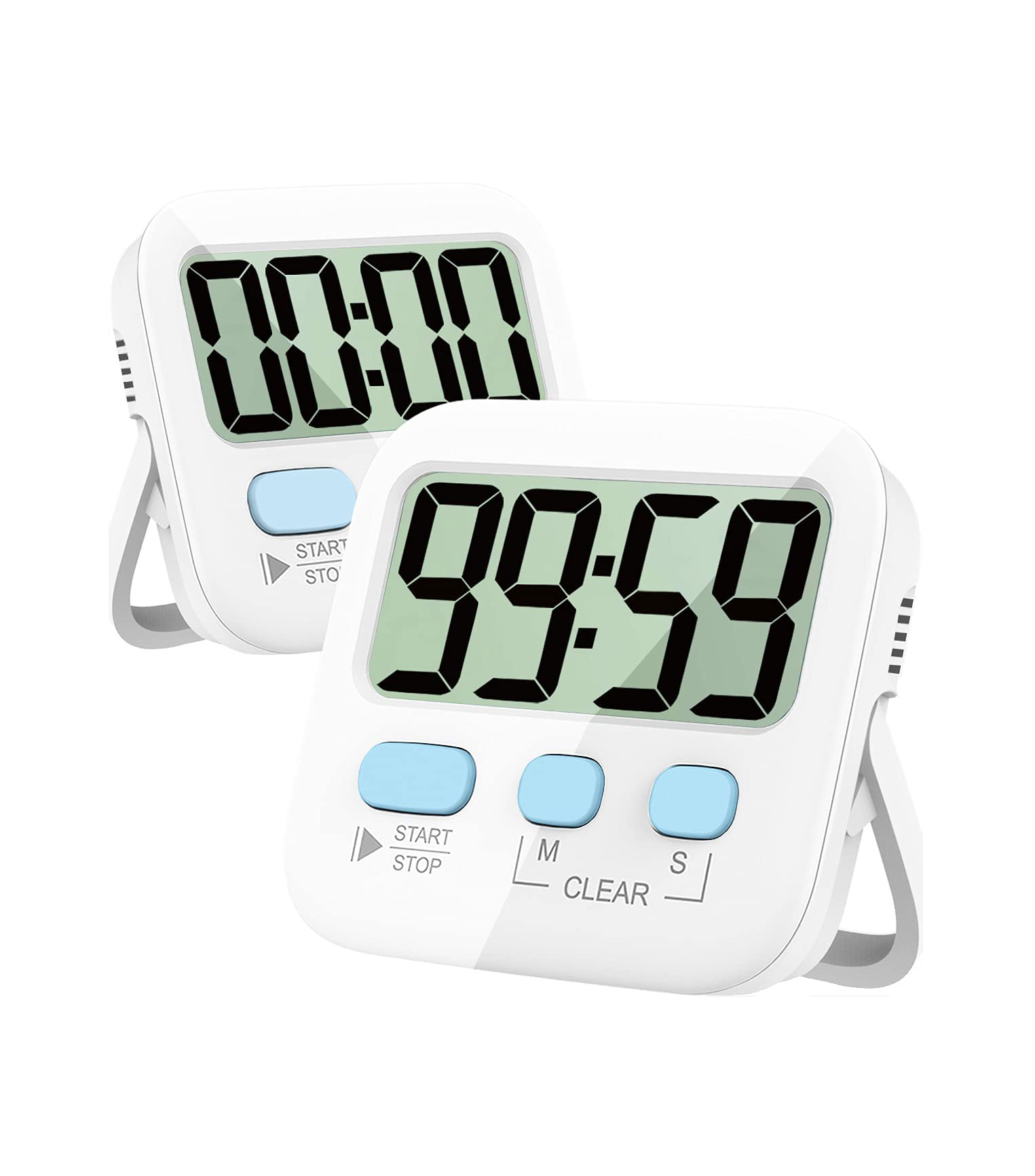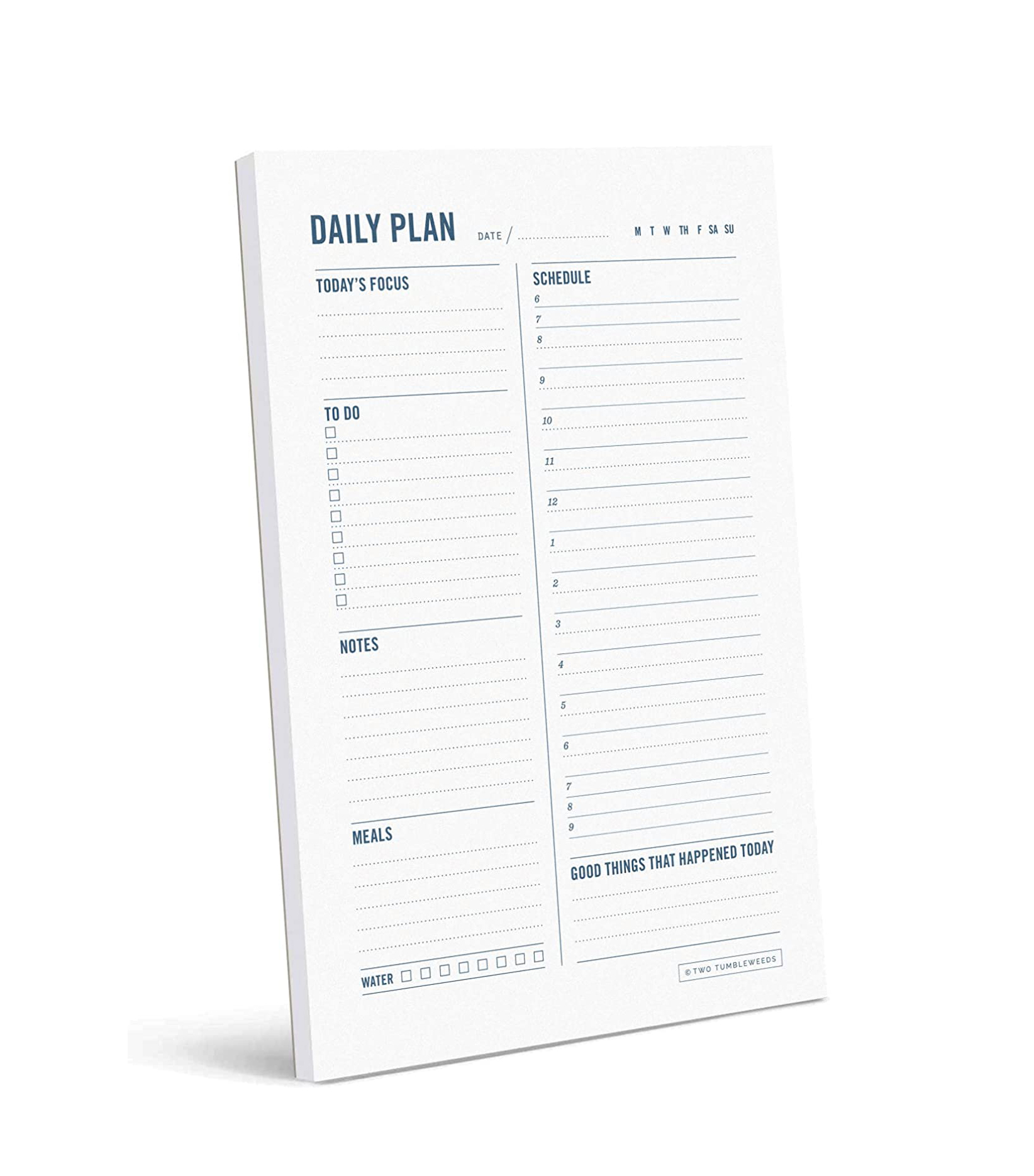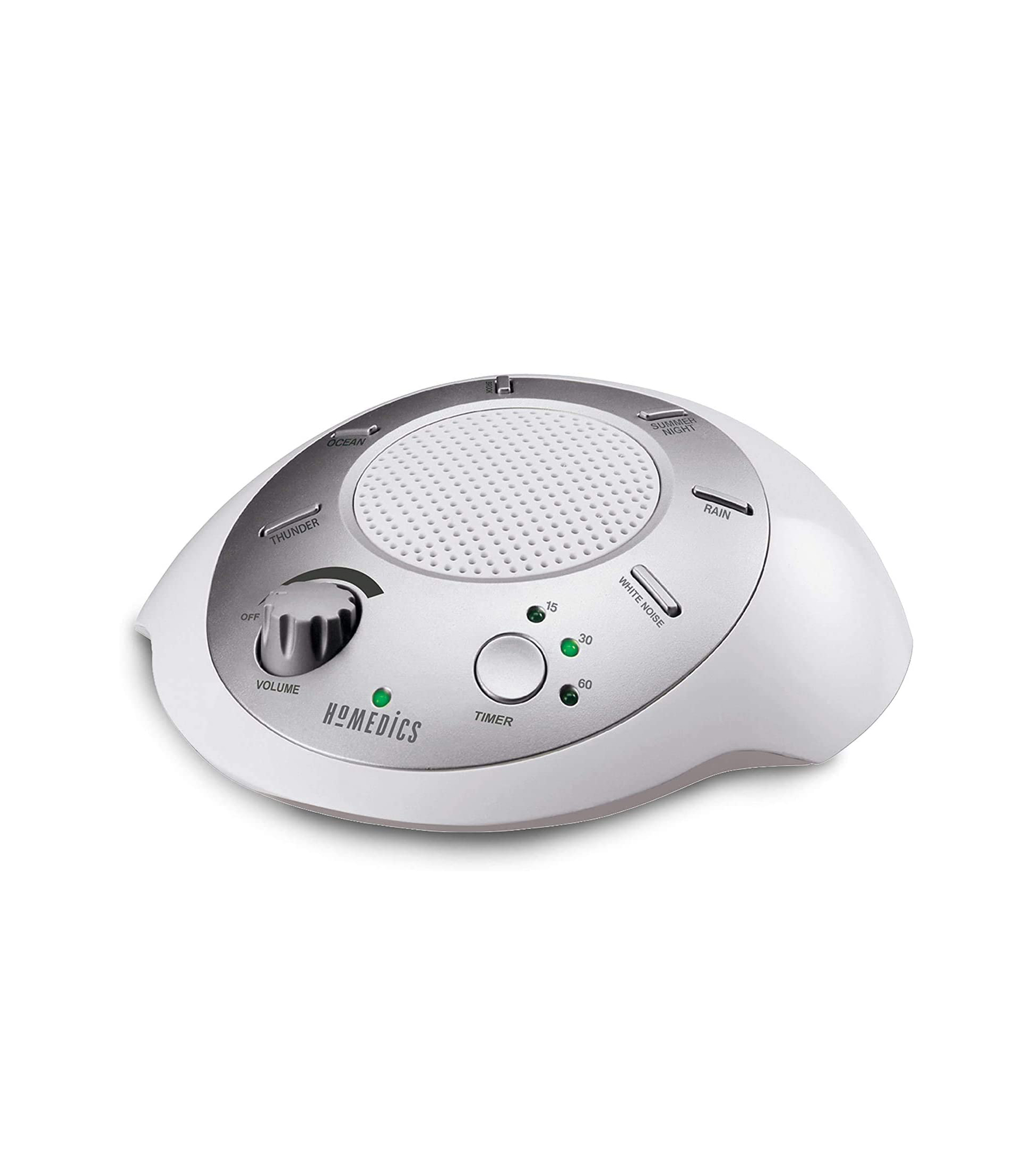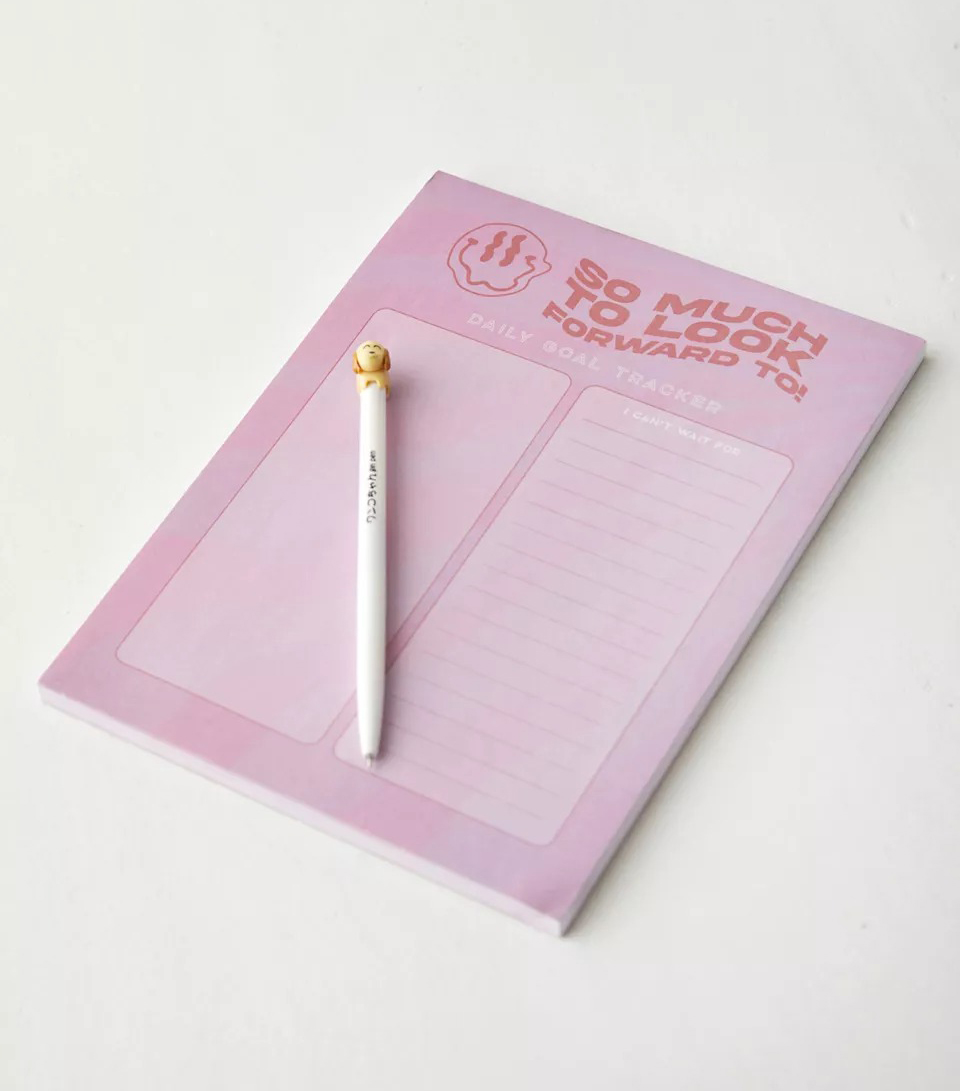12 Useful Tricks to Help You Stay Focused When You're Majorly Distracted

In the age of social media, it can be hard to focus on one thing for longer than a few minutes (for some of us, that may even be seconds.) Think about how fast you refresh your Instagram feed or scroll through TikTok… I know, scary. With that said, this lack of focus can permeate other aspects of our lives such as important work meetings, daily conversations, and everyday tasks. You may not even realize you're losing focus, but when you do it's too late and you've missed important messages or notes.
If that sounds familiar, not all hope is lost. While you could try a focus supplement, that isn't the only helpful method. We've tapped a few therapists to get some tips on how to improve focus that you can implement into your daily life. From putting your phone away to creating the ultimate to-do list, keep reading to find out how to improve focus with a little bit of practice and consistency.
1. Plan Your Breaks

When trying to get anything done, setting up breaks is important, but it can have a significant effect on overall focus. "When we're trying to focus, but are prone to distractions, knowing you have a planned break to give in to those distractions can be very helpful," says Lauren Melzer, Ed.D. CHES. "Reward yourself with it instead of trying to steer clear completely. For example, for every hour that you are completely into your work, you'll get 15 minutes to zone out or do whatever you'd like."
2. Don't Multitask

You may think you're being more productive if you're multitasking, but it's actually hindering your focus. "Very few of us can successfully work on multiple things at the same time. What's actually happening is we're splitting our focus across the board," says Rachel Miller, LMFT and founder of Hold The Vision Therapy. "Instead, try time blocking. Pick specific times or chunks of time when you want to work on a specific task, and stay on it until your scheduled break or it's time to move on to something else."
3. Put Away Distractions

This one is easier said than done, but it'll help improve your focus tenfold if you stick to it. "As much as we like to think of ourselves as great multi-taskers, there is a lot of relief we can find if we allow ourselves to tune into fewer things at a time and be present with what's in front of us," says Madeline Lucas, LCSW, therapist and clinical content manager at Real. "Ask yourself what you need in your space to remain in the moment. Maybe you set your phone on 'Do Not Disturb,' light a candle, or play some gentle focus music."
4. Practice Mindfulness

You've probably heard of mindfulness, but how often do you actually take the time to get in tune with yourself and the present moment? It can be difficult, but the end result can be rewarding, especially when it comes to improving focus.
"Building your mindfulness muscle takes time. I recommend non-judgmentally noticing when your attention has drifted. With practice, you can improve your ability to notice, name, and redirect your focus to the task at hand," says Lucas.
5. Ground Yourself

Lucas notes that research has shown that taking even very short breaks while staying in your space can return you to concentration.
Miller suggests engaging the senses to ground yourself. "Using a sensory grounding item like smell, taste, or sound can keep you present," she says. "Citrus smells and flavors are particularly invigorating, though a cold glass of water or a quick crunchy snack can work just as well for some people."
6. Repeat Things Back

You might recall your waiter repeating your order before they put it in and there's a reason for that. The act of repeating things back can help improve your focus says Alexandra Gil, PsyD, NCSP.
For example, if someone asked you to go get something, you would simply repeat it back even if as a question (i.e., someone asks you to go get groceries and bring carrots, potatoes, and napkins and you say, "Alright, so I'm getting carrots, potatoes, and napkins, right?")
7. Get a Good Night's Sleep

"Sleep is very important for helping us focus as our brain needs rest in order to perform better," says Gil. "Researchers have actually found a positive correlation between less sleep leading to decreased concentration and focus."
8. Use White Noise

Depending on the person, you may benefit from white noise rather than complete silence when trying to focus. "As much as people may say that a loud environment contributes to a struggle with focus, it may also be difficult for some others in an environment that is too quiet," says Gil. "Now, this doesn't mean one should turn on their favorite song or go somewhere that is chatty if they prefer less quiet environments. On the other hand, white noise has been linked to a better ability to focus."
9. Go to Therapy

Sometimes mental health issues like anxiety and depression can make it more difficult to focus. One way to work on that is to go to therapy to develop healthy coping mechanisms. "Engaging in therapy to minimize those symptoms would work in unison to improve focus and concentration," says Gil.
10. Don't Look at Your Phone in the Morning

It might be tempting to look at your phone in the morning, but try to refrain if you can. "When we check news notifications, texts, social media, or email, we begin our day with a burst of dopamine—the feel-good chemical we experience when something is new or exciting," says Kate Nichols, LCSW, a psychotherapist practicing virtually in New Jersey and who specializes in working with creatives. "Our brain continues to crave that dopamine, setting us up for a 'dopamine chase' throughout the day. This is where that urge to mindlessly 'check" your phone without even thinking about it comes from, which can be a huge interference when trying to focus."
11. Create a Hierarchical To-Do List

"By categorizing tasks into red (top priority—must be completed), yellow (medium priority—ideally can be completed), and green (low priority—it's okay if it's not completed right now), you can stay focused on the most urgent tasks without being distracted by the rest of the items on your list," says Laura Sgro, LCSW, who focuses on inclusive and compassionate wellness.
12. Move Your Body

It's time to get up and get moving. Not only will it get your blood flowing, but it can also help improve focus. "Simply releasing some of your excess energy with things like jumping jacks, a quick jog up and down a flight of stairs, or a good stretch can be enough to come back and focus on the task you need to complete," Miller says.
Next, How the Founder and CEO of Create & Cultivate Starts a Productive Workday
Disclaimer
This article is provided for informational purposes only and is not intended to be used in the place of advice of your physician or other medical professionals. You should always consult with your doctor or healthcare provider first with any health-related questions.








